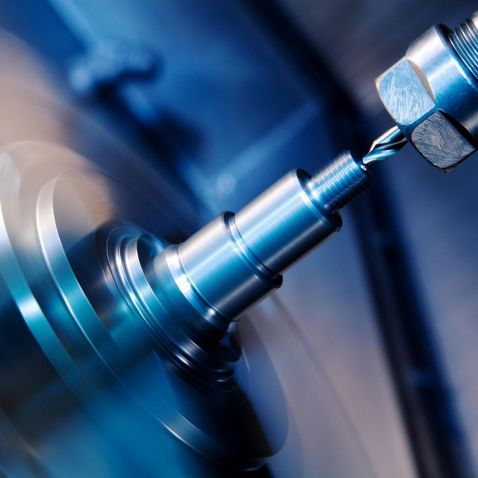Precision Machinery
Rubber seals in precision machinery are key components that protect sensitive parts, ensure accuracy, and help maintain controlled environments.
1.Contamination Prevention and Dust Sealing
Rubber seals are used to prevent the ingress of dust, dirt, and moisture, which can impair the performance of precision machinery.
2. Vibration and Shock Absorption
Rubber seals serve as vibration dampers in moving parts of precision machinery, helping reduce mechanical shock and vibrations.
3. Fluid and Gas Containment in Hydraulic and Pneumatic Systems
In hydraulic and pneumatic systems, rubber seals are used to contain high-pressure fluids and gases, ensuring they flow without leaks.
4. Smooth Motion and Alignment in Moving Parts
Rubber seals aid in reducing friction and ensuring smooth movement in mechanical components like shafts, bearings, and actuators.
5. Pressure and Vacuum Sealing in Precision Chambers
Rubber seals are used to create airtight seals in chambers that operate under pressure or vacuum conditions, such as in precision measuring equipment or scientific instruments.
The Type of material Used:
1. Nitrile Rubber (NBR)
Properties: NBR is good for oil and fuel resistance. While it performs well at moderate temperatures, it can degrade in high heat and does not have strong ozone or UV resistance.
Applications: Hydraulic systems, fuel systems, and automotive gaskets.
Temperature Range: -40°C to +120°C (-40°F to +250°F).
2. Fluorocarbon (Viton®)
Properties: FKM offers excellent chemical resistance and high-temperature performance. It offers superior thermal stability and chemical resistance.
Applications: High-temperature and high-chemical environments, including aerospace, automotive, and industrial equipment.
Temperature Range: -20°C to +250°C (-4°F to +482°F).
3. EPDM (Ethylene Propylene Diene Monomer)
Properties: EPDM is known for its resistance to water, steam, ozone and UV exposure.
Applications: Outdoor machinery, automotive seals, and fluid handling systems.
Temperature Range: -50°C to +150°C (-58°F to +302°F).
4. Silicone Rubber
Properties: Silicone has excellen temperature stability, making it suitable for both high and low-temperature environments.
Common Applications: Food processing, medical equipment, and high-temperature applications.
Temperature Range: -60°C to +230°C (-76°F to +446°F).
5. Polyurethane (AU, EU)
Properties: Polyurethane is known for its exceptional abrasion resistance and toughness. It can handle high mechanical stress and moderate temperatures.
Applications: Heavy-duty hydraulic seals, industrial machinery, and high-wear applications.
Temperature Range: -40°C to +120°C (-40°F to +248°F).




